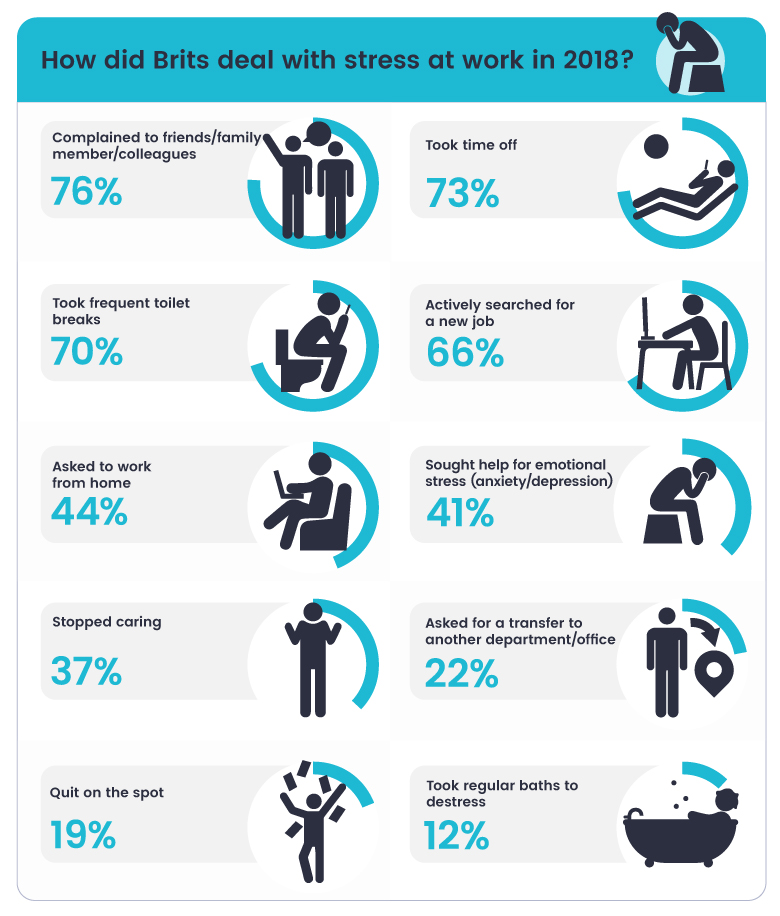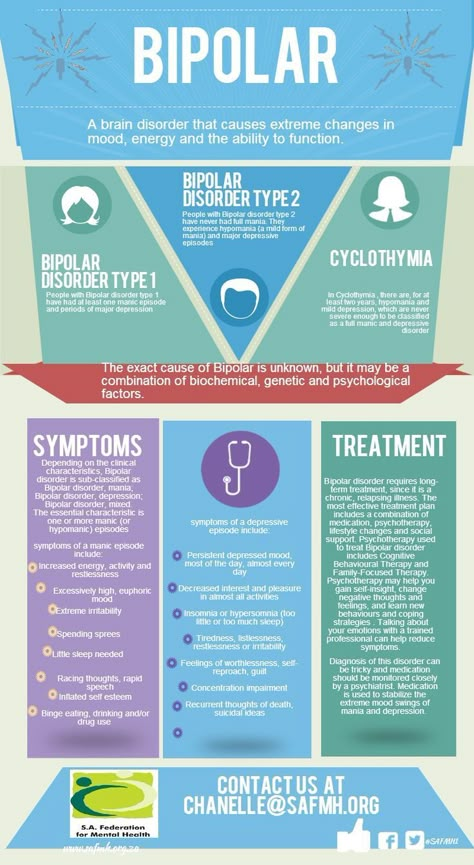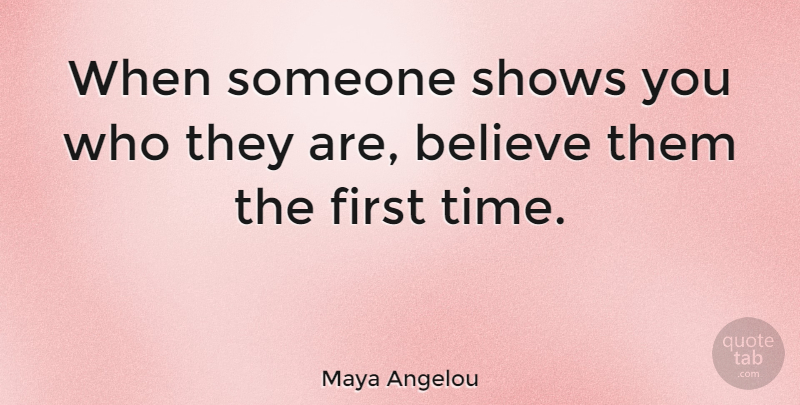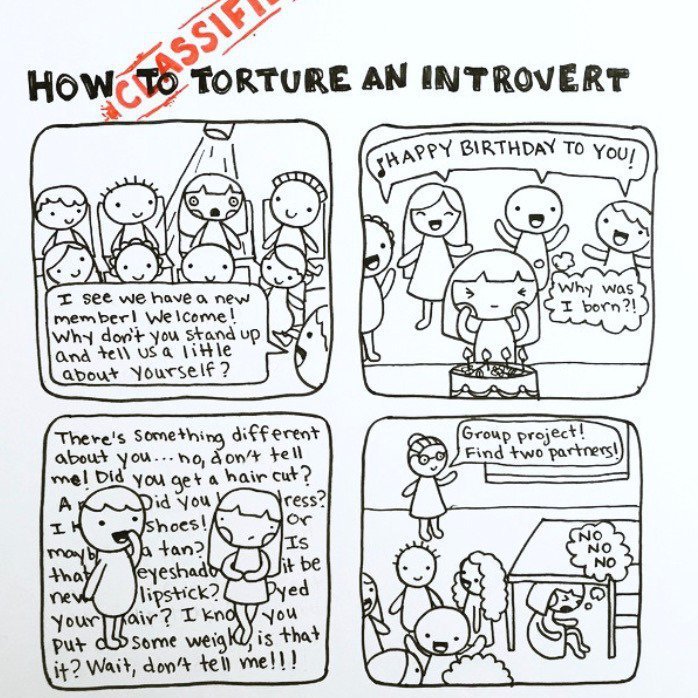How to deal with anticipatory anxiety
Definition, symptoms, coping, and more
Anticipatory anxiety, or excessive worry about the future, is a symptom of many types of anxiety disorder.
While most people tend to wonder or even stress about future events or situations to some extent, extreme levels of anticipatory anxiety can negatively impact a person’s everyday life and functioning.
In this article, we explore anticipatory anxiety, including its symptoms, causes, and what people can try in order to cope with it.
Anticipatory anxiety involves feeling high levels of anxiety about a future event or situation.
While some level of concern about the future is common and acceptable, anticipatory anxiety involves an excessive or debilitating level of worry that tends to focus on negative outcomes.
People with anticipatory anxiety may feel anxious for hours, days, weeks, or months before an event.
People may experience anticipatory anxiety before:
- work meetings or presentations
- interviews
- musical or athletic performances
- a date or social event
Individuals may also have anticipatory anxiety about potential future occurrences, such as:
- natural disasters
- being attacked
- the death of a loved one
- relationship breakdown
Anticipatory anxiety is not a disorder, but a symptom of other anxiety disorders, such as social anxiety disorder.
Learn more about different types of anxiety disorders here.
Anticipatory anxiety causes people to feel nervous, concerned, or fearful about the future. People may spend time dwelling on the worst-case scenarios regarding future situations.
Those who experience anticipatory anxiety will typically have other anxiety symptoms, which can differ from one person to another. Each anxiety disorder has its own symptoms, which can vary in intensity and duration.
Some symptoms of anxiety include:
- feelings of apprehension or dread
- feeling tense or jumpy
- restlessness or irritability
- anticipating the worst
- being watchful for signs of danger
- pounding or racing heart and shortness of breath
- headaches, fatigue, and insomnia
- sweating, tremors, and twitches
- upset stomach, frequent urination, or diarrhea
Anticipatory anxiety is a normal human process and a reaction to stress. Anxiety only becomes a problem when it involves excessive fear or worries that impact a person’s wellbeing and functioning.
Anticipatory anxiety is a symptom of other anxiety disorders, such as:
- Generalized anxiety disorder (GAD): Affecting 3.1% of the population in any given year, GAD causes persistent and excessive anxiety about various activities and events. Learn more.
- Social anxiety disorder: This disorder, which has affected an estimated 7.1% of U.S. adults in the past year, is characterized by anxiety and avoidance of social situations due to embarrassment or self-consciousness. Learn more.
- Specific phobias: People with phobias experience major anxiety and fear when they anticipate or are in the presence of a specific object, place, or situation. In the past year, an estimated 9.1% of U.S. adults had specific phobia. Learn more.
- Panic disorder: Affecting 2–3% of Americans in a given year, panic disorder causes repeated attacks of panic and intense anxiety that peak within a few minutes.
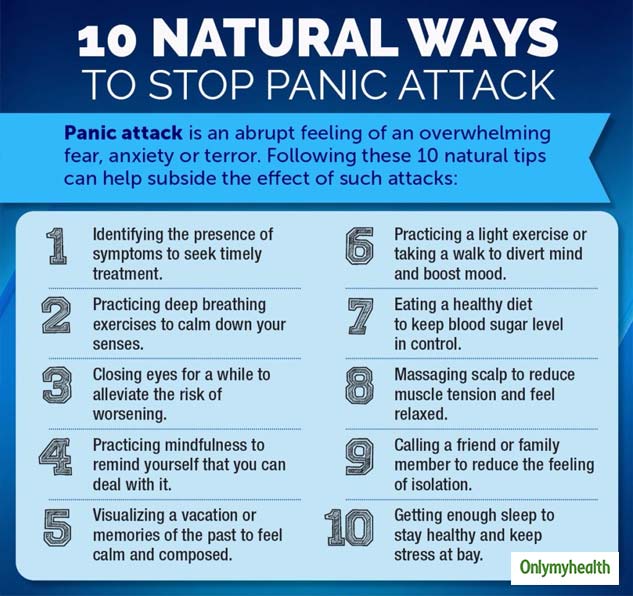 Learn more.
Learn more.
Experts still do not fully understand the causes of anxiety disorders. However, they may result from a combination of:
- Genetics: Anxiety disorders often run in families.
- Life experiences: Traumatic events or high levels of stress, for example, can trigger anxiety in some people.
- Medical conditions: Some medical illnesses, such as heart disease or thyroid disorders, can contribute to anxiety.
- Medications: Anxiety can be a side effect of some medications, or withdrawal from medications or drugs.
Risk factors for anxiety disorders include:
- a family history of anxiety disorders
- having other mental health issues
- experiencing trauma or high levels of stress
- using drugs or alcohol
A doctor or mental health specialist, such as a psychiatrist or psychologist, can diagnose an anxiety disorder. To make a diagnosis they may:
- carry out a psychological evaluation
- compare symptoms to the criteria in the American Psychiatric Association’s Diagnostic and Statistical Manual of Mental Disorders (DSM-5)
- perform blood tests or other tests to rule out a physical cause of symptoms
The following tips may help people with anticipatory anxiety to reduce their fear and cope with uncertainty about the future:
Look after basic needs
Good self-care begins with taking care of basic needs.
- Reduce sources of stress where possible.
- Eat a balanced diet, and limit caffeine and sugar, which can make anxiety worse.
- Exercise regularly, as research indicates it can reduce anxiety.
Sleep is another important area for those with anxiety. Individuals should try to get enough sleep by going to bed at the same time each night and getting up at the same time each morning.
However, anticipatory anxiety causes sleep disturbance and insomnia, and a lack of sleep worsens anxiety. Breathing exercises or meditation can help people fall asleep more easily. People struggling with chronic sleep disturbance should see a doctor if mindfulness activities do not help.
Practice relaxation and grounding
Techniques to help relaxation can reduce anxiety over time. They also improve sleep quality. Useful techniques include:
- deep breathing
- progressive muscle relaxation
- guided imagery
- grounding techniques
People can learn more about these techniques from a therapist. There are also numerous apps or online videos that can help guide people through each process.
There are also numerous apps or online videos that can help guide people through each process.
People should also note that these techniques are not a cure for anxiety. If a person uses them incorrectly, for example when they feel anxious, they can serve as avoidant coping.
Ideally, people should practice these exercises at certain scheduled times, rather than when they feel anxious. A healthcare professional can help a person mindfully incorporate relaxation techniques into cognitive behavior therapy (CBT) or exposure therapy.
Journal
Journaling may help people to reduce anxiety and explore their fears and triggers. People with avoidance disorders should do this with the guidance of a trained mental health professional, as it could lead to rumination (dwelling on negative thoughts), or a compulsion that functions as avoidant coping.
Address negative thoughts
Changing a person’s thinking can help change their moods. People can do this by considering the source of the anxiety and the negative thoughts it produces.
Then, explore how realistic these thoughts are. Often, people with anxiety imagine the worst-case scenario. If they continue to challenge negative thoughts when they arise, these thoughts should become less frequent over time.
Practice self-compassion
Self-compassion — treating oneself with kindness and care in negative situations — may reduce anticipatory anxiety.
One way individuals can practice self-compassion is to explore how they might treat a friend who was having anticipatory anxiety. Often, people are kinder to others than they are to themselves. This exercise highlights the importance of self-compassion.
Find more self-compassion exercises here.
Take charge of the situation
As anticipatory anxiety occurs when people worry about a future event or situation, it can be helpful to take charge of the situation.
For example, if someone is anxious about a job interview, it may be helpful to practice answering interview questions with a friend or family member.
There are several natural ways of reducing anxiety. Learn about them here.
Anxiety disorders are highly treatable. The primary treatments are:
Therapy
During therapy, a person can discover and address sources of stress and anxiety. Therapists can also help people learn healthy coping techniques.
Some types of therapy may be more effective than others for anxiety.
CBT is generally an effective treatment for anxiety disorders, including GAD, panic disorder, social anxiety disorder, and specific phobia.
CBT teaches people to change their thinking in order to improve their mood and change their behaviors.
Research also demonstrates that exposure therapy is helpful for these issues. Exposure therapy involves gradual exposure to anxiety-inducing situations to help people build confidence and manage their symptoms.
Learn about different types of therapy here.
Medication
Medication can help ease anticipatory anxiety and other anxiety symptoms.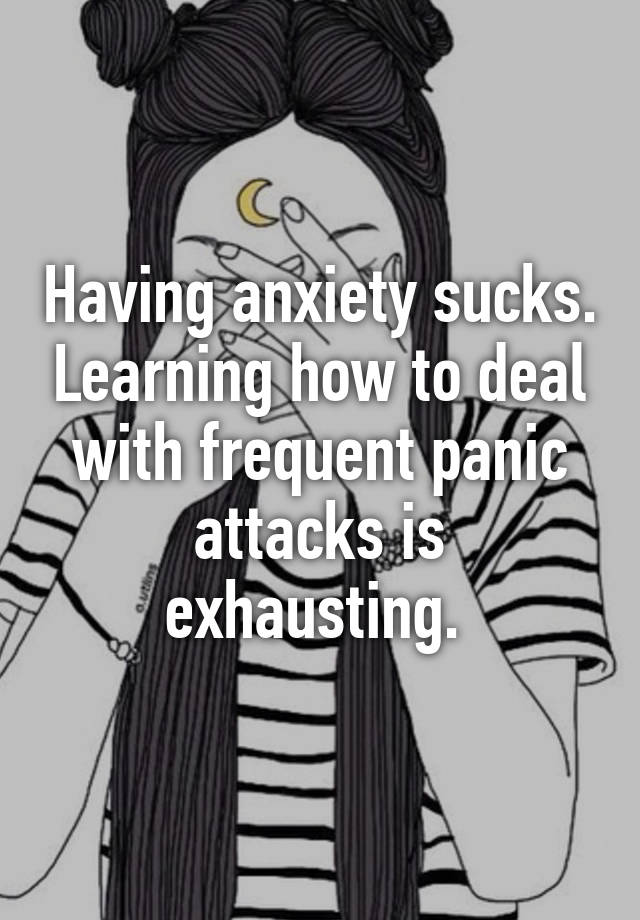 It may work better when people combine it with therapy. Common medications for anxiety include anti-anxiety medications, such as buspirone, and antidepressants.
It may work better when people combine it with therapy. Common medications for anxiety include anti-anxiety medications, such as buspirone, and antidepressants.
Sometimes, a doctor may prescribe other drugs for short-term use, such as benzodiazepines or beta-blockers. Individuals should discuss their options and the benefits and risks of each one with their doctor.
Inappropriately discarded drugs can harm people, animals, and the environment. It is essential to dispose of any unwanted medication safely. Read our guide on medication disposal here.
Individuals should talk with their doctor or a mental health professional if:
- they experience excessive anticipatory anxiety or other anxiety symptoms
- symptoms interfere with their everyday life, work, or relationships
- anxiety is difficult to control
- people have other mental health concerns, or are using alcohol or drugs to cope
- they have other symptoms of a physical health condition
While some anxiety before events and situations is common, excessive levels of anticipatory anxiety can suggest an anxiety disorder.
Individuals who have overwhelming fears, or worry about the future, should speak to their doctor or a mental health professional.
Living with an anxiety disorder can be challenging, but they are highly treatable with therapy, medications, or both.
5 Tips to Manage Anticipatory Anxiety
January 14, 2021
Does thinking about the future keep you up at night? Do you run over every possible future scenario in your head out of worry? If your anxious feelings about the future are persistent and have interfered with your day-to-day life, you may be struggling with anticipatory anxiety.
What is Anticipatory Anxiety?
Anticipatory anxiety is the fear or worry that bad things could happen in the future. With this type of anxiety, we may fixate on the things we can’t control or predict. The uncertainty of the future can be scary because it is out of our control. Anticipatory anxiety is characterized with the phrase “What if…?”
- What if I trip up in my job interview?
- Or what if I fail an important upcoming exam?
- What if my first date goes terribly?
We can apply these “what ifs” to our daily lives, but we can also become fixated on larger issues too. We may contemplate “what ifs” about the current coronavirus pandemic, racial injustices, the climate crisis, or economic instability. Worrying is normal and something that we all do. But anticipatory anxiety can begin to put stress on our personal relationships, making us less present. When these fears become overwhelming and intrusive, that’s when we may need to find new ways to manage them.
We may contemplate “what ifs” about the current coronavirus pandemic, racial injustices, the climate crisis, or economic instability. Worrying is normal and something that we all do. But anticipatory anxiety can begin to put stress on our personal relationships, making us less present. When these fears become overwhelming and intrusive, that’s when we may need to find new ways to manage them.
Signs of Anticipatory Anxiety
Here are some common signs you may be struggling with anticipatory anxiety:
- Difficulty concentrating
- Trouble managing emotions and mood
- Loss of interest in your usual hobbies
- Jumpiness or restlessness
- Muscle tension and pain
- Nausea and appetite loss
- Sleep problems
Tips to Feel Less Anxious About the Future
Practice Relaxation Techniques
When we feel anxious, anxiety can take over our body. It takes a conscious effort to calm it down. To relax, focus on deep breathing. Focusing on breathing can significantly decrease our feelings of panic or nervousness. It can help root us in the present. And if your mind begins to wander, bring it all back to your breath. There are many wonderful guided breathing techniques to try out.
It takes a conscious effort to calm it down. To relax, focus on deep breathing. Focusing on breathing can significantly decrease our feelings of panic or nervousness. It can help root us in the present. And if your mind begins to wander, bring it all back to your breath. There are many wonderful guided breathing techniques to try out.
We can also focus on relaxation by closing our eyes and focusing on visual imagery that makes us feel more at peace. Or progressive muscle relaxation is another technique to try out. It involves tensing and relaxing each muscle, from head to toe. Any form of meditating and relaxing our mind can be a great remedy for our anxious thoughts.
Challenge Your Anxious Thoughts
It may help to challenge our anxious thoughts directly. We can wonder about the best and worst case scenarios of a given situation, then consider if what we’re thinking about is truly realistic. We may not realize how much we catastrophize the future in our heads. If we can acknowledge the uncertainty for what it is and make peace with it, then we can refocus back on the present moment.
Another way we can challenge our thoughts is through keeping a journal. We often have hindsight bias, which causes us to believe we had better control of things in the past. However, when we look back we can see how uncertain things truly were and how we handled uncertainty at the time and still ended up okay. This type of reflection can help us accept that uncertainty is a natural part of life, beyond our control.
Find a Healthy Distraction
Sometimes, we just need to focus on something other than our anxious thoughts. We can always come back to them and work through them. But it’s okay if you need to take some time to distract yourself with something else. Going for a walk, calling a friend, listening to music, doing chores around the house, reading a book, or watching a show are all healthy ways to divert our focus for a bit.
Take Action
Anticipatory anxiety can lead us to put off important things. We may search for ways to avoid the experiences that we fear. Although there is a lot beyond our control, there are still small things we can do to take action and feel less anxious than before. If you’re worried about the climate crisis, donate your time or money to an organization that helps with the cause. Or if you’re worried for the health of your loved ones, give them a call to connect with them and share life updates with them. There’s small ways that we can actively address our fears.
Although there is a lot beyond our control, there are still small things we can do to take action and feel less anxious than before. If you’re worried about the climate crisis, donate your time or money to an organization that helps with the cause. Or if you’re worried for the health of your loved ones, give them a call to connect with them and share life updates with them. There’s small ways that we can actively address our fears.
Speak to Someone About It
Lastly, it may help to talk to a trusted loved one about our concerns. They can be a source of comfort when we are feeling overcome with worry. However, if you are still experiencing persistent anticipatory anxiety, consider seeking professional help through therapy. At Eugene Therapy, our compassionate therapists will listen to your concerns and provide useful tools to manage your anxiety.
Other Helpful Articles
- 5 Surprising Ways to Manage Anxiety
- 9 Ways to Overcome Fear and Anxiety
- Anxiety Doesn’t Have to Run Your Life
- Quick Tips for Managing Anxiety
- 3 Tips for Managing Anxiety
9 ways to deal with anxiety
Something constantly worries us - so constantly that we are used to existing in this state and not even suspect that we are preventing ourselves from living the way we want.
 Unfortunately, you cannot completely get rid of anxiety, especially in a constantly rushing world, but you can reduce its intensity on your own. Re-read Tanya Peterson's book Inner Peace. 101 Ways to Cope with Anxiety, Fear and Panic Attacks" and selected some practical tips for dealing with strong feelings.
Unfortunately, you cannot completely get rid of anxiety, especially in a constantly rushing world, but you can reduce its intensity on your own. Re-read Tanya Peterson's book Inner Peace. 101 Ways to Cope with Anxiety, Fear and Panic Attacks" and selected some practical tips for dealing with strong feelings.
Tanya Peterson
Mann, Ivanov & Ferber, 2020
How to identify anxiety
It should be said right away that anxiety is a completely normal condition that performs a very important function of alerting us to a possible danger. And everything would be fine, but a modern person is not so often threatened by something in the literal sense, however, it seems that there are only more triggers. So anxiety becomes more of a problem than a survival helper. It leads to emotional burnout, chronic stress and constant fatigue, due to which we cannot function fully.
There are several symptoms that can tell you how anxious you are lately:
-
I can't stop thinking about what has already happened.
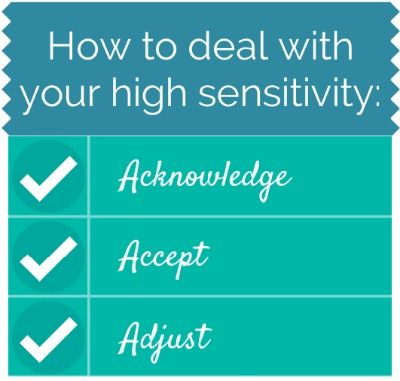
-
I am worried about what will happen in the future, I am equally worried about tomorrow and what will happen in a few years.
-
I feel tired, but I am constantly in a state of agitation.
-
I often “turn off” and cannot continue to work.
-
I have obsessive thoughts.
-
I have few obvious things to worry about.
-
I try to avoid people and certain places.
-
I feel like I'm at a dead end.
-
I'm trying to get rid of my anxiety, but it won't go away.
-
My relationships with people, work and myself are suffering.
If you've been experiencing any of these symptoms for a long time, it might be time to slow down a bit and pay more attention to yourself, your mental health, and lifestyle changes that can help reduce your stress levels.
Storytel is an international subscription audiobook service. The Storytel library contains audiobooks from almost all genres, from classics and non-fiction to lectures, stand-ups and podcasts. This is a service that solves the problem of reading. It lets you listen to audiobooks anytime, anywhere: while exercising, preparing meals, commuting to and from work, on the plane, before bed, and whenever you want. Storytel creates and records its own unique content - lecture projects, podcasts, audio series, and also collaborates with the best voices in the country.
This is a service that solves the problem of reading. It lets you listen to audiobooks anytime, anywhere: while exercising, preparing meals, commuting to and from work, on the plane, before bed, and whenever you want. Storytel creates and records its own unique content - lecture projects, podcasts, audio series, and also collaborates with the best voices in the country.
We get rid of obsessive thoughts
We think that the more we think about the problem, the more likely we are to find a solution to it or prepare for possible unpleasant consequences. In fact, we do not help ourselves much when we think about what worries us very much. The level of anxiety rises, and even if you have a solution to the problem, this does not mean that you will instantly stop worrying. What to do in such a situation?
Exercise “I have a thought”
When we think about the subject of our anxiety, it is as if we are no longer in the present and are transported into the past or future. The exercise helps to return to reality and remind yourself that your experiences are just thoughts, albeit largely justified (but not always).
The exercise helps to return to reality and remind yourself that your experiences are just thoughts, albeit largely justified (but not always).
Think about what is bothering you and say: “I have an idea that tomorrow the conversation with management will not go very well. And this is just a thought” . Even better, say it out loud, and it will become easier for you to return to your previous affairs and not live with what has not yet happened or has already happened.
The question “What if?”
We are often visited by thoughts that can be formulated through one question: “What if?” What if we don't suit each other? What if the manager calls for a meeting in order to cut my salary? Such thoughts appear completely by chance, they cannot be controlled, since they are directly related to our experiences and fears. However, you can develop the habit of always finding an alternative.
Think of a new, positive response to each of your worrisome thoughts. For example, suppose that a meeting with superiors will lead to a promotion, and a possible tense conversation with a partner will end in agreement. It would be useful to treat this with a bit of humor and imagine a completely absurd outcome: for example, that the leader drops everything and moves to the North Pole, and leaves you in charge without explaining the reasons. By approaching anxiety with humor, you will change the vector of your thoughts and feel a little better.
For example, suppose that a meeting with superiors will lead to a promotion, and a possible tense conversation with a partner will end in agreement. It would be useful to treat this with a bit of humor and imagine a completely absurd outcome: for example, that the leader drops everything and moves to the North Pole, and leaves you in charge without explaining the reasons. By approaching anxiety with humor, you will change the vector of your thoughts and feel a little better.
Concentration on breathing
It's no secret that in our body all systems are connected to each other. If we are angry, the pulse quickens, if we are in a calm state, it slows down. Obsessive thoughts can make your head hurt, and prolonged inactivity will lead to muscle discomfort, which will cause your body to send signals to move with all its might.
Meanwhile, a conscious focus on breathing will have the opposite effect: if obsessive thoughts lead to rapid breathing, then calmness will relieve unnecessary stress.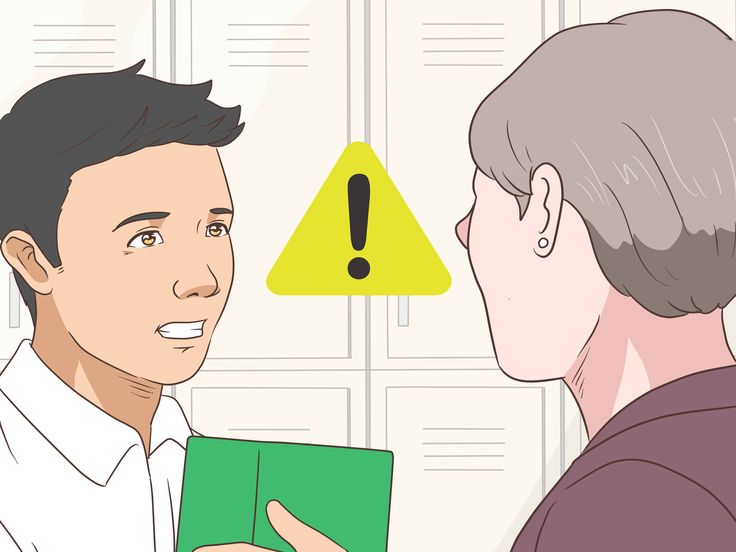 Your task is to slowly inhale and exhale, concentrating on this process. Think about how the chest fills with air and releases it. Repeat several times until breathing returns to normal.
Your task is to slowly inhale and exhale, concentrating on this process. Think about how the chest fills with air and releases it. Repeat several times until breathing returns to normal.
Storytel is an international subscription audiobook service. The Storytel library contains audiobooks from almost all genres, from classics and non-fiction to lectures, stand-ups and podcasts. This is a service that solves the problem of reading. It lets you listen to audiobooks anytime, anywhere: while exercising, preparing meals, commuting to and from work, on the plane, before bed, and whenever you want. Storytel creates and records its own unique content - lecture projects, podcasts, audio series, and also collaborates with the best voices in the country.
Dealing with anxiety at work
As much as we love our job, it often comes with some level of stress, which is fine until anxiety starts to affect performance, focus, and relationships with colleagues. The most common cause of anxiety at work is the presence of someone “higher than us”, on whose opinion your performance, sense of self-worth, motivation and much more depend. However, there are methods that can help shift your focus and gain confidence.
However, there are methods that can help shift your focus and gain confidence.
Good Morning Ritual
Many would agree that almost the rest of the day depends on our getting up in the morning. Often, in fact, the reluctance to wake up and get out of bed is not laziness at all, but an alarm signal, since it may seem to you that something will definitely happen at work that will only confirm all the worst fears. When you get up with these thoughts in the morning, you reinforce certain behaviors that are completely unproductive. What can you do?
-
Clean your room the night before so you don't wake up in a stressful mess.
-
Place a glass of water next to the bed. When the alarm goes off, take a deep breath, stretch, sit down and drink all the water. Wait a while, listen to your body. This helps reduce anxiety.
-
Move from the bedroom to a purpose-built space. Sit quietly, mindfully observing the surroundings, sounds, and smells in the room.
 Appreciate how you feel while sitting in a chair. Do a short meditation focusing on the in-breath and out-breath.
Appreciate how you feel while sitting in a chair. Do a short meditation focusing on the in-breath and out-breath. -
Enjoy a decaffeinated cup of tea or coffee (caffeine tends to increase anxiety).
-
When you feel ready, get up slowly and continue to prepare for the day ahead.
Mantra of non-judgment
Condemnation of oneself and others leads to mental limitations, takes energy and resources, and also increases the level of anxiety. While the basis of any work on oneself is the acceptance of shortcomings and weaknesses, both one's own and others.
To stop the flow of restless thoughts in time, chant the mantra of non-judgment. Like affirmations, a mantra is a statement that reminds you of something important. Say to yourself: "Today I am not judging anyone or anything" or "My mind is open, my thoughts are neutral" . Come up with a mantra that will help you, and repeat it to yourself as often as possible so as not to dwell on condemnation.
Toxic perfectionist
Almost all of us have a small part that prevents us from enjoying life, because "everything is not perfect." Feeling anxiety from a sense of imperfection, you do not allow yourself to feel harmony and satisfaction from what you have done, which is why the desire for the ideal only increases. And along with it, the level of anxiety. This is an unpleasant vicious circle that can be broken by accepting your imperfection. You are already good enough, and the following exercise will help you see it:
-
Describe a time when perfectionism got in the way.
-
If you made a mistake, what then? Think and write as many possible consequences as possible - both positive and negative.
-
Study this list. If each of the consequences happened, how would you handle the failure?
If you think about the cause of anxiety, and not anxiety itself, you will learn to look at it from a new perspective, and also notice that, despite imperfections, you have actually already done a lot to make everything go well and with a minimum of mistakes.
Storytel is an international subscription audiobook service. The Storytel library contains audiobooks from almost all genres, from classics and non-fiction to lectures, stand-ups and podcasts. This is a service that solves the problem of reading. It lets you listen to audiobooks anytime, anywhere: while exercising, preparing meals, commuting to and from work, on the plane, before bed, and whenever you want. Storytel creates and records its own unique content - lecture projects, podcasts, audio series, and also collaborates with the best voices in the country.
Relationships are very important to us: we worry about what people close to us think of us, play different roles when communicating with colleagues or friends, because this way we are more likely to win favor. Whether we like it or not, we need to communicate with people at least occasionally, which can be a cause for concern for many of us. While there are plenty of opportunities around us to enjoy communication rather than diligently avoiding it. There are several simple exercises that will help, if not get rid of anxiety, then at least reduce it to an acceptable level.
There are several simple exercises that will help, if not get rid of anxiety, then at least reduce it to an acceptable level.
List of positive things
Experiences make us think about the most negative consequences of communication and completely forget about what good happened between you and, let's say, your partner. To remember the pleasant, make a list for yourself of a variety of moments when you were happy.
If this is a problem, then your level of anxiety may not allow you to really enjoy the fact that you spend time with this or that person. A list can also help here, but now the positive points that you need to create with your own hands. For example:
-
Treat a close friend for coffee and spend time with him.
-
Create a shared playlist with friends or family.
-
Find someone to go to trade shows, the gym, or go for a daily morning run with.
After that, start putting into practice situations in which you think you will be happy. And try to live in this moment, and not the anxiety that something will definitely not go according to plan.
And try to live in this moment, and not the anxiety that something will definitely not go according to plan.
Careful attitude towards oneself and others
We are all worried - just someone to a greater extent, and someone to a lesser extent. Nevertheless, there are plenty of reasons for anxiety, self-doubt and the feeling that we will eventually be abandoned, each of us has plenty. Just a reminder of this brings you back to reality and confirms the fact that you are not at all alone in your anxiety.
What should I do in this case? Mantras that will be directed both at you and those around you can help you. Formulate for yourself life-affirming phrases that will remind you in moments of anxiety that your experiences are normal and familiar to everyone. For example:
-
I allow myself to be accepted as I am. / Let others accept themselves as they are.
-
I will allow myself to calmly accept my mistakes. / Let others take their mistakes calmly.

-
I will allow myself to rejoice at what I can do. / Let others rejoice in their achievements.
The list can be anything, as long as it reflects your worries.
Why do you need a relationship?
Anxiety often occurs because our expectations and needs are not being met. We can compromise and give in to another person as much as we like, but in the end, dissatisfaction will be stronger than anything else. Therefore, as soon as you catch yourself thinking that anxiety has unwittingly become your new partner, think about how your needs are being met. Here is a list of the basic things we usually want from another person:
-
love, feeling needed;
-
partnerships;
-
power;
-
independence, freedom;
-
mutual support;
-
intimate relationships;
-
flexibility, ability to negotiate;
-
pleasure.

Ask a friend, acquaintance, or partner to make the same list, and then discuss the answers. Understanding what you and the other person need will give you more knowledge and opportunities for communication that will be enjoyable for everyone.
How to cope with anxiety: 7 ways to help ‹ GO Blog
Anxiety is an emotional state caused by the expectation of danger or threat. While fear is a basic human emotion associated with the instinct of self-preservation, and appears directly at the moment of danger.
The terms "fear" and "anxiety" are not synonymous, but they can be used interchangeably when it comes to situational anxiety (state at a given moment in time).
In the normal state, the self-preservation function encourages action, but there are also moments of apathy when anxiety intensifies.
We will tell you how to cope with anxiety on your own and determine its level in yourself.
Read more: "9 Proven Ways to Beat Procrastination"
How to Measure Anxiety
American psychologist Charles Spielberger studied more than 117 signs of human anxiety and created a scale to determine its level. His "assessment of the level of anxiety" is divided into situational and personal. Situational is responsible for the state at a given moment in time and the influence of external circumstances - for example, self-isolation. Personal - character of a person.
His "assessment of the level of anxiety" is divided into situational and personal. Situational is responsible for the state at a given moment in time and the influence of external circumstances - for example, self-isolation. Personal - character of a person.
To determine “your level” of anxiety, you can take a test of 40 short questions.
What causes anxiety
The main factors that provoke increased anxiety in us are loneliness, problems at work, problems in relationships, health, environment and all sorts of conflicts.
Our lifestyle also has a great influence. For example, we are more likely to experience anxiety states if we are constantly on the phone or watching the news on TV. Digital progress has certainly made our life faster and better, but we pay for this comfort with an additional level of stress, new fears and complexes due to the large flow of news.
Try to minimize the number of hours spent on the Internet. Go outdoors, read, do yoga, cook, cross-stitch, build LEGOs – there are so many more options than you might think.
Stages of anxiety
– Waiting alarm. People who foresee the most unfavorable of all possible situations suffer. Such anxiety can appear at certain moments or haunt a person constantly.
– Anxiety in the form of phobias is associated with certain situations and objects. For example, fear of loneliness, spiders or darkness. May be a clinical case if expressed in the form of panic attacks.
- Neurotic anxiety. This form of anxiety is the most serious and is found in many psychological diseases: hysterical, schizoid. There is a pathological level of fear here that destroys a person's mental health.
The whole planet is now in fear of waiting due to the incessant flow of news and uncertainty. "Fear of waiting" or "free fear" is formed due to the information flow in which we are constantly immersed. The tools that help to cope with situational anxiety, which has no connection with clinical cases, will be described below.
False alarm
Feelings of fear are easily confused, so before we talk about how to get rid of anxiety, we will learn how to identify it.
There are situations when we do not distinguish between emotions, so the so-called "false alarm" is formed. In this case, the first thing psychologists can advise is to learn how to isolate anxiety from a large stream of other emotions. Observe for yourself - in what situations you are overcome by anxiety. Divide these situations into those in which anxiety is justified and those where it is not.
For example, you are on a bus and as you approach the bus stop, you are overtaken by a feeling of anxiety. On the one hand, this may be due to fear that you will miss your stop, or a sense of shame, as it is embarrassing to ask the driver to stop the car.
Or another example, you want to ask the teacher a question in class, but you are afraid to raise your hand. This fear may arise from self-doubt and the expectation that classmates will laugh at you.
Sometimes anxiety is born from some other feelings, such as shame or insecurity. Realizing this and overcoming it, you no longer have a reason for concern, and with it the state of anxiety disappears.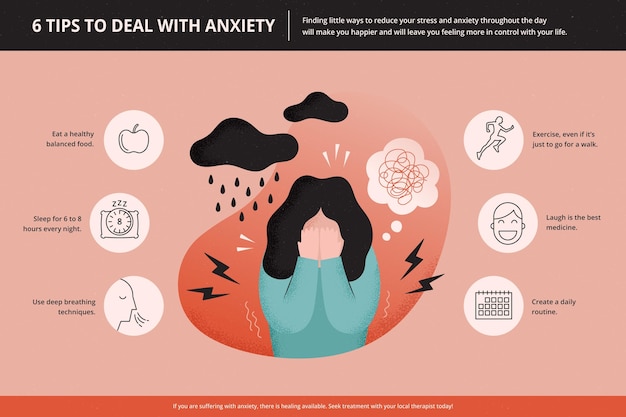
Read more: “How to stop being shy and get rid of the language barrier”
How to cope with anxiety
Details
Axiety often occurs due to uncertainty in actions and feelings. First, try to find out what causes anxiety. For example, you are worried about being fired from your job. Before you panic, look at the facts: look at the state of the market and the area in which your company operates, evaluate the workload at work now and predict the task plan for the next month. And this applies not only to work, but to any area in which you feel anxiety.
Usually this exercise helps to see the true picture. If you understand that while everything is under control, you can exhale, if not, proceed to your detailing. Write out a detailed plan of action that will help you avoid uncertainty and tell you how to act in any situation:
-
Write down what skills you have and where they can be useful.
 For example, being an illustrator or photoshop, having a driver's license and owning a car, copywriting skills, etc.
For example, being an illustrator or photoshop, having a driver's license and owning a car, copywriting skills, etc. -
Edit your resume and prepare some cover letters to the employer about yourself.
-
Form your own range of services, from the most preferred activities to the least interesting.
-
Leave a list of potential employers to whom you can offer your services. The bigger, the better.
-
Write to them!
The work done will help you feel more confident and have a plan for coping with a crisis.
Sometimes anxiety arises from the belief that we will not be able to cope with this or that action. A visual picture of your skills will always help to believe in yourself. When you read your list, you will realize that you can achieve a lot, despite the circumstances.
Read also: “4 things on your resume that will help the employer to choose you”
Use exposure therapy
A complex combination of words with a simple meaning - a meeting with your problem "on the forehead.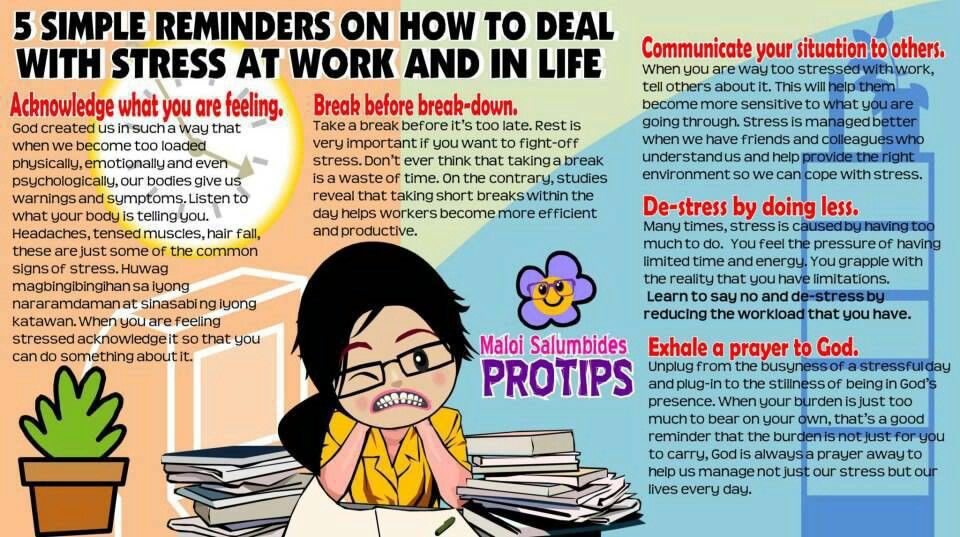 " It is important to understand that this is NOT a fight against a problem. The point is to acknowledge the existence of anxiety, not to get rid of it completely.
" It is important to understand that this is NOT a fight against a problem. The point is to acknowledge the existence of anxiety, not to get rid of it completely.
Don't ignore things that make you feel anxious. For example, to move up the career ladder, you need to learn English, but you haven’t opened your textbook for three days and you constantly scold yourself for it. This lowers your self-esteem and increases your anxiety about your success at work and in life.
Give yourself a full day of rest without worries and self-criticism. Imagine that this is an official vacation or vacation. And then gradually get down to business: you can start with one page of English text per day or a five-minute video. Gradually, you will accustom your body to the load and develop a habit.
Keep a sleep schedule
It is during sleep that growth hormone is produced, which is responsible for the restoration of our body, including the nervous system. Especially if we go to bed before 12 o'clock at night.
The BBC's Trust Me I'm a Doctor, in collaboration with the University of Oxford, did a little experiment on how sleep affects our psychological state. The study involved people who are distinguished by "strong sleep". During the experiment, the participants were given conditions: in the first three nights they had to sleep for 8 hours, which is the norm, and the next three nights - for 4 hours. Every day, the subjects answered questions that helped determine changes in their psychological state, behavior and emotions. The results showed that after two nights of sleep deprivation, negative emotions began to predominate in the subjects, as well as an increase in distrust of others and aggression.
The study also shows that insomnia is not always the result of mental disorders, sometimes it is lack of sleep that provokes the appearance of psychological problems.
Switch
It is important to periodically switch from one activity to another - for example, from physical activity to mental activity.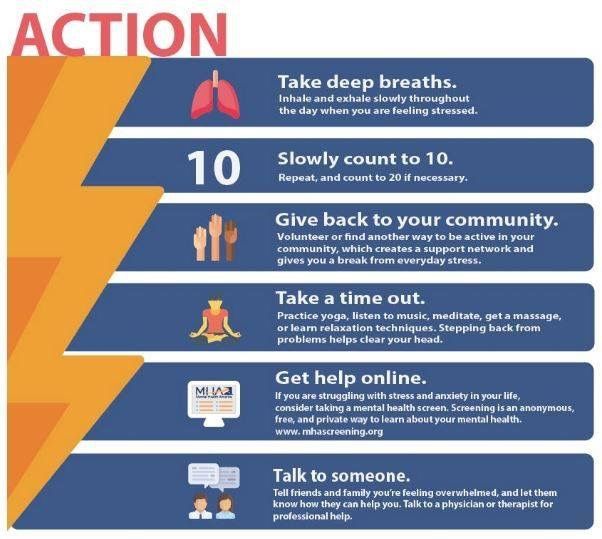 So, when you go in for sports, there is a restoration of brain functions due to the supply of oxygen. And with mental stress, the muscular system is restored by improving blood flow in the muscles.
So, when you go in for sports, there is a restoration of brain functions due to the supply of oxygen. And with mental stress, the muscular system is restored by improving blood flow in the muscles.
A simple alternation of work and study with a small amount of physical activity will improve the functioning of the body's metabolic processes, and at the same time accelerate the restoration of the nervous system, contributing to its strengthening.
Meditate and breathe
Meditation and breathing are sure helpers in overcoming psychological instability. A Johns Hopkins University study found a relationship between meditation practice and reduced symptoms of depression and anxiety. The team of researchers found that the effect of meditation is comparable to the effect of depressants - in this case, being a more useful solution to the problem, as it does not cause side effects. Meditation also helps to switch the work of the brain and focus on yourself, and not on the "noise" around.